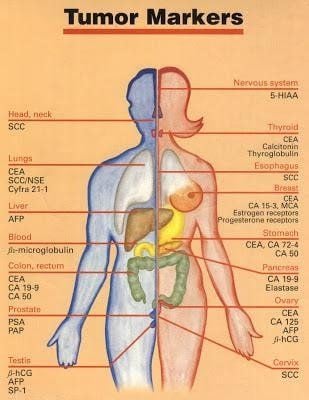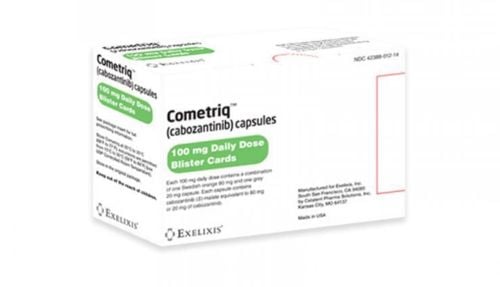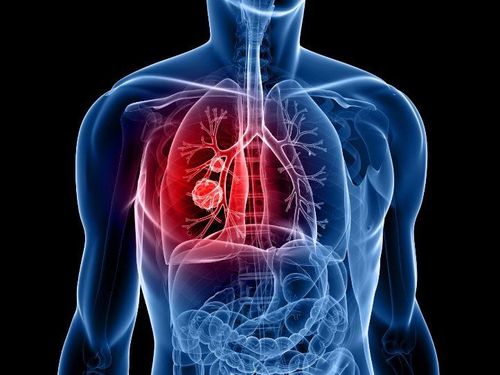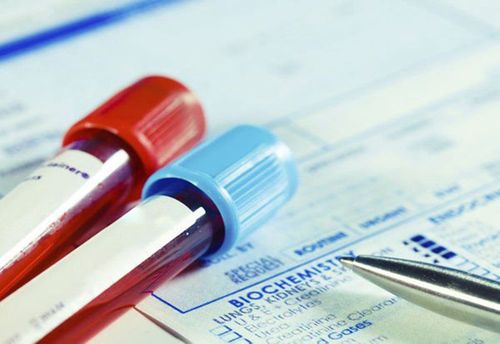This is an automatically translated article.
Posted by doctor Biochemistry Test - Laboratory Department - Vinmec Ha Long International Hospital
SCC is the best tumor marker for squamous cell cancers of the cervix, lung, head and neck, esophagus, and anus. Accordingly, the elevation of SCC in the blood correlates with disease stage, clinical presentation and tumor recurrence. SCC test is easy to perform, supports early diagnosis, prompt treatment, and brings high treatment efficiency to patients.
1. What is the SCC test?
SCC test is a quantitative immunoassay for squamous cell carcinoma antigen (SCCA or SCC) levels, using serum/plasma.
MORE: What does the SCC indicator mean?
2. The role of the SCC test in cancer detection and monitoring
To diagnose cancer, the decision is still on histopathology, other supportive investigations include imaging (Ultrasound, X-ray techniques) and quantitative markers. cancer/tumor markers. In particular, the quantitative test of tumor markers in the blood, due to the ability to accurately quantify the concentration of specific antigens for each type of tumor-cancer, has important and effective significance in the treatment of cancer. supporting diagnosis orientation, monitoring progress and effectiveness of cancer treatment.
Each type of cancer will usually have one / 1 group of antigens used as tumor markers. SCC is the best tumor marker for squamous cell cancers. Elevation of blood SCC correlates with disease stage, clinical presentation, and tumor recurrence.
MORE: SCC in squamous cell carcinoma
3. How are squamous cells distributed in the body and in which organs/parts can squamous cell carcinoma appear?
Squamous epithelium is the main component of the epidermis, it is also present in the stroma of the gastrointestinal tract, lungs, cervix and other areas of the body.
Squamous cell cancer can occur in many organs, mainly the lungs, cervix, vagina as well as lips, mouth and esophagus.

Tế bào biểu mô vảy là thành phần chính của biểu bì da
4. Significance of SCC in diagnosis and monitoring of squamous cell cancer
Normally SCC exists in the body and circulates in the blood in a very small amount (Depending on each test device, the reference range given by the manufacturer will be different. For example, the concentration of SCC in humans. normal with test technique using Cobas 3 ng/mL, with Architect ≤ 2 ng/mL).
Plasma SCC concentrations are often increased in cancer cases:
4.1. Cervical squamous cell carcinoma
In squamous cell cervical cancer SCC has a sensitivity of 70-74%. The concentration of SCC increased in 45-83% of people with squamous cell cervical cancer, 66-84% of people with recurrent squamous cell cervical cancer, 56% of people with adenosquamous squamous cell carcinoma of the cervix. and 0-23% of people with adenocarcinoma of the cervix. The increase in SCC concentration is proportional to the severity of squamous cell cervical cancer. Cases of SCC plasma concentration > 30 ng/mL after treatment may be prone to relapse and short survival time. After surgery combined with radiation therapy, SCC levels returned to normal in about 3 days, cases of high levels of SCC again after surgery signal a high chance of cancer recurrence (up to 92%).
4.2. Lung cancer
In the diagnosis of lung cancer, it is common to combine the SCC marker with other cancer markers such as NSE, CYFRA 21-1 and CEA to differentiate lung cancer types.
The frequency of highest SCC concentration in squamous cell lung cancer is 39-78%, in non-small cell lung cancer is 33-61%, in large cell lung cancer is 18%, in lung cancer Small cell lung cancer is 4-18% and in adenocarcinoma it is 15-42%.
Regarding clinical sensitivity: In squamous cell lung cancer: SCC is 76-78%, higher than CEA (31-63%); in non-small cell lung cancer: SCC is 41%, lower than CEA (70%); in small cell lung cancer: SCC is 10%, lower than NSE (73%).
There is also a correlation between plasma SCC levels and the severity of squamous cell lung cancer. After surgery, the level of SCC will decrease, in case the level of SCC increases again, it is a signal of cancer recurrence.
4.3. Stomach cancer
Sensitivity of SCC is 30-39%, sensitivity increases with disease stage, from 0-27% (stage I), 20-40% (stage II), 39-61% (stage III) ), to 45-50% (stage IV).

Ung thư thực quản, độ nhạy của SCC là 30-39%
4.4. Skin cancer
SCC is elevated in most cases of squamous cell cancer.4.5. Carcinoma of the head and neck region
In head and neck carcinoma, the sensitivity of SCC is 34-78%.4.6. Penile cancer
In penile cancer the sensitivity of SCC is 45%.
In addition, in other types of cancer, increased levels of SCC can be seen in other adnexal cancers such as breast cancer, endometrial cancer, ovarian cancer, vulvar cancer, and cancer. vaginal cancer, rectal cancer, pancreatic cancer, anal cancer.
Cases of benign disease where plasma SCC levels can also be slightly increased can be seen in some people with cirrhosis, pancreatitis, renal failure, benign lung disease (such as chronic bronchitis, obstructive pulmonary disease) chronic and tuberculosis ), benign gynecological diseases, ENT diseases, psoriasis , dermatitis, pemphigus or eczema.
In summary, SCC is considered to be the best tumor marker for squamous cell cancers of the cervix, lung, head and neck, esophageal and anal cancers. Accordingly, the elevation of SCC in the blood correlates with disease stage, clinical presentation and tumor recurrence. SCC test is easy to perform, supports early diagnosis, prompt treatment, and brings high treatment efficiency to patients.
Currently, Vinmec International General Hospital has been and continues to be fully equipped with modern diagnostic facilities such as: PET/CT, SPECT/CT, MRI... biology, immunohistochemistry, genetic testing, molecular biology testing, as well as a full range of targeted drugs, the most advanced immunotherapy drugs in cancer treatment. Multimodal cancer treatment from surgery, radiation therapy, chemotherapy, hematopoietic stem cell transplantation, targeted therapy, immunotherapy in cancer treatment, new treatments such as autoimmunotherapy body, heat therapy...
After having an accurate diagnosis of the disease and stage, the patient will be consulted to choose the most appropriate and effective treatment methods. The treatment process is always closely coordinated with many specialties to bring the highest efficiency and comfort to the patient. After undergoing the treatment phase, the patient will also be monitored and re-examined to determine whether the cancer treatment is effective or not.
Especially, now to improve service quality, Vinmec also deploys many cancer screening packages that can help customers detect cancer early before there are no symptoms, bringing a better prognosis. treatment and a high chance of recovery.
Please dial HOTLINE for more information or register for an appointment HERE. Download MyVinmec app to make appointments faster and to manage your bookings easily.













